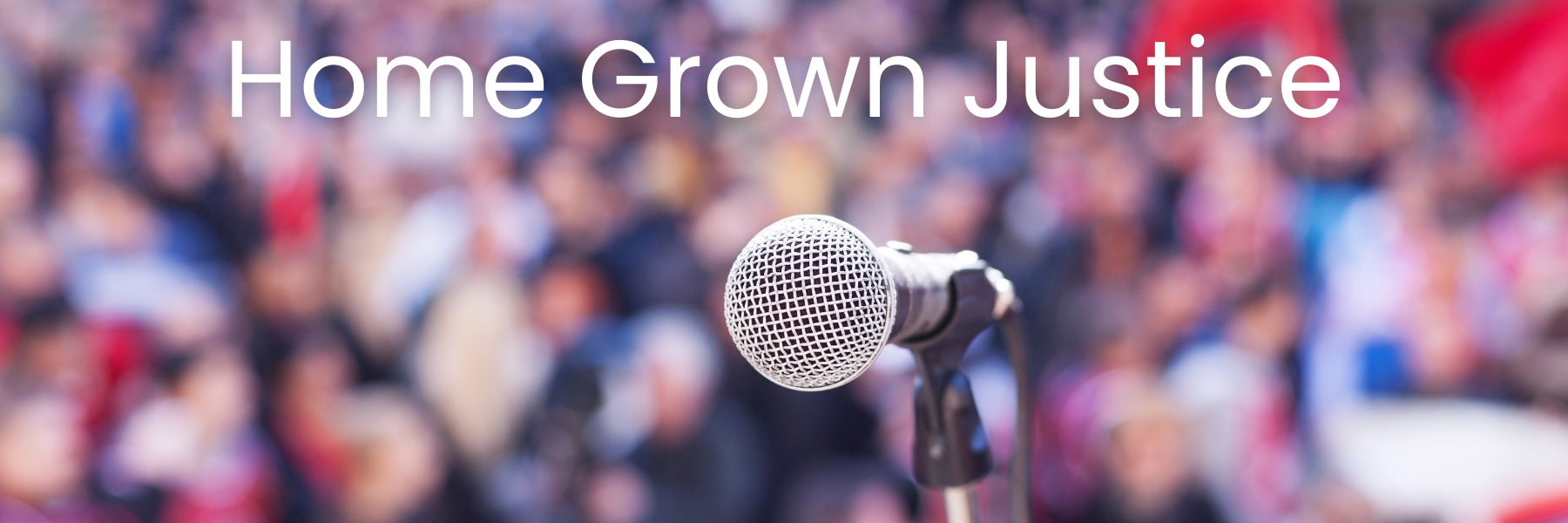Justice
Resisting Evil, Injustice, and OppressionCreating a welcoming, safe, inclusive, and anti-racist environment for St. Andrew, Douglas County, and beyond.
Mission & Vision
We believe justice is a core teaching of Jesus Christ.
Our baptismal vows as United Methodists include our commitment “to resist evil, injustice, and oppression in whatever forms they present themselves.” The pursuit of justice and compassion are at the core of faithful action. As a community, we seek to move beyond acts of mercy to transforming systems that perpetuate injustice and harm. Created in the image of God, we seek to live in covenant with God and the world and honor the dignity of all beings.
Earth Day Green Fair
Sunday, April 27 | 8:30 am – 12 pm | In the atrium
Earth Day Green Fair, sponsored by Earth Keepers, features tips and tools for creation care. Includes resources to reduce, reuse and recycle.
Home Grown Justice
Second and Fourth Tuesdays | 1:30–3 pm
Note: No meeting on June 10
Home Grown Justice seeks to create a community of people who are wanting to make positive change within the current political landscape. Together we can share our collective knowledge and resources to take actionable steps as people of faith.
Justice Resources
Explore the topics below to learn, grow, and discover more.
Racial Justice
Reconciliation and
Human Rights
Gender and Sexuality
Public Health
Climate and Eco-Justice
Social Equity
F.A.Q.
Reconciling Frequently Asked Questions
What does it mean to be a Reconciling Congregation?
As Christians, we strive to follow Christ’s example of welcoming and love for all. But the Book of Discipline of the United Methodist Church (the United Methodist book of rules and doctrine) contains unwelcoming language about gay, lesbian, bisexual, and transgender persons. This is the only group of people expressly made to feel unwelcome by official denominational statements, and the only group denied full rights of participation in the UMC.
To be reconciling simply means that we disagree with the unwelcoming language of our official denominational statements, and we choose instead to be inclusive of all people.
The Scriptures are the highest source of guidance in our faith. The Gospel shows us that God’s love and character are most clearly expressed in the life of Jesus, who sought to create a community that went beyond our narrow conceptions of God to include everyone.
Why do we have to make a public statement?
Many churches and Christian leaders are public about their anti-gay actions and statements, so we feel that we should be just as public about being in ministry with gay, lesbian, bisexual, and transgender persons. The overwhelming perception within the LGBTQIA+ community today is that they are not welcome in churches. We want our public statement to help overcome that perception. Remember Jesus’ statement about hiding your light under a bushel (Matt. 5:15)? We don’t want to keep quiet about this! Our status as a Reconciling Congregation is something we celebrate.
Did our vote split our church? Is there conflict in the congregation over this issue?
Definitely not. We’re very proud of the fact that in our congregational vote, the overwhelming majority supported our reconciling statement. We’re even prouder that some of those who disagreed stuck around and are still part of the family – we think that a good old-fashioned family disagreement is no reason to stop loving each other!
Are other congregations or ministries in the Rocky Mountain Conference also part of the Reconciling Congregations movement?
Yes. We’re happy and proud to stand with congregations such as Arvada UMC, Mountain View Community Church, Christ Church UMC, Cameron Church, Belong Church, First UMC Boulder, and others. Also, the Western Jurisdiction (of which we are a part) recently voted to become a Reconciling Jurisdiction.
How can I find out more about this issue and St. Andrew’s position?
We’re glad you asked! Feel free to contact any of our pastors with further questions. You can catch us on a Sunday morning or at the church during the week, and we will be happy to talk with you.
How did we become a Reconciling Congregation?
Like most churches that take this step, we engaged in prayer, study, and dialogue about the concerns of LGBTQIA+ persons in the church for a period of several months. During that time, a group of congregation members drafted the “Welcoming Statement” included above to reflect our stance. That statement was approved by the Leadership, after which an all-church vote was held to approve the statement. We’re proud to say that it passed with an overwhelming majority.
Why single out LGBTQIA+ persons? Why not just welcome everyone?
We do welcome everyone. But the Reconciling Congregation movement highlights the open discrimination which LGBTQIA+ persons face in our church and society. In the United Methodist Church, LGBTQIA+ persons are the only social group for whom participation in some aspects of general church life is barred by church law. At the same time, we know that there are other persons and groups in our society with whom our churches must be reconciled. That’s why we’ve adopted a welcoming statement that includes all persons “regardless of age, gender, race, class, ethnic background, mental or physical ability, or gender/sexual orientation.”
Does being a Reconciling Congregation mean that we’re an all-gay church?
No, it means that we’re an “all kinds” church. At St. Andrew, you’ll find people across the spiritual, political, and social spectrum. Most of us are native English speakers, but some are not. Some of us are politically conservative while others are liberal. Most of us have European ancestors, but some of us don’t. Some of us understand the Bible in a fairly literal way, while others believe that the Bible is to be understood as an expression of the historical time and place it was written. Most of us are heterosexual, and some of us are lesbian, gay, bisexual, or transgender. But in the end, we have this in common: we think that diversity is God’s good gift, and we celebrate it!
Does this mean that St. Andrew is openly breaking church law?
Being a reconciling congregation does not violate the United Methodist Book of Discipline (which is our “church law”). John Wesley, the founder of Methodism in the 1700s, said that Methodists “think and let think.” What he meant is that beyond our agreement on central aspects of Christian doctrine, Methodists can hold diverse opinions on all kinds of topics. One of the great things about Methodism is that each individual, and each pastor and church, is free to express our opinions about spiritual, social, political, and economic issues. We recognize that whatever our differences, what binds us together as Christians are far more important than whatever might separate us.
If one of our pastors decides to perform a same-sex marriage, that would violate the rules in the Book of Discipline, and they would be accountable to church authority. At the same time, we support their ministry. We understand that if they choose to break the rules in that way, they do so out of their prayerful belief that the prohibition of same-sex marriage is unjust, and their prayerful desire to be pastors to all those they serve.


